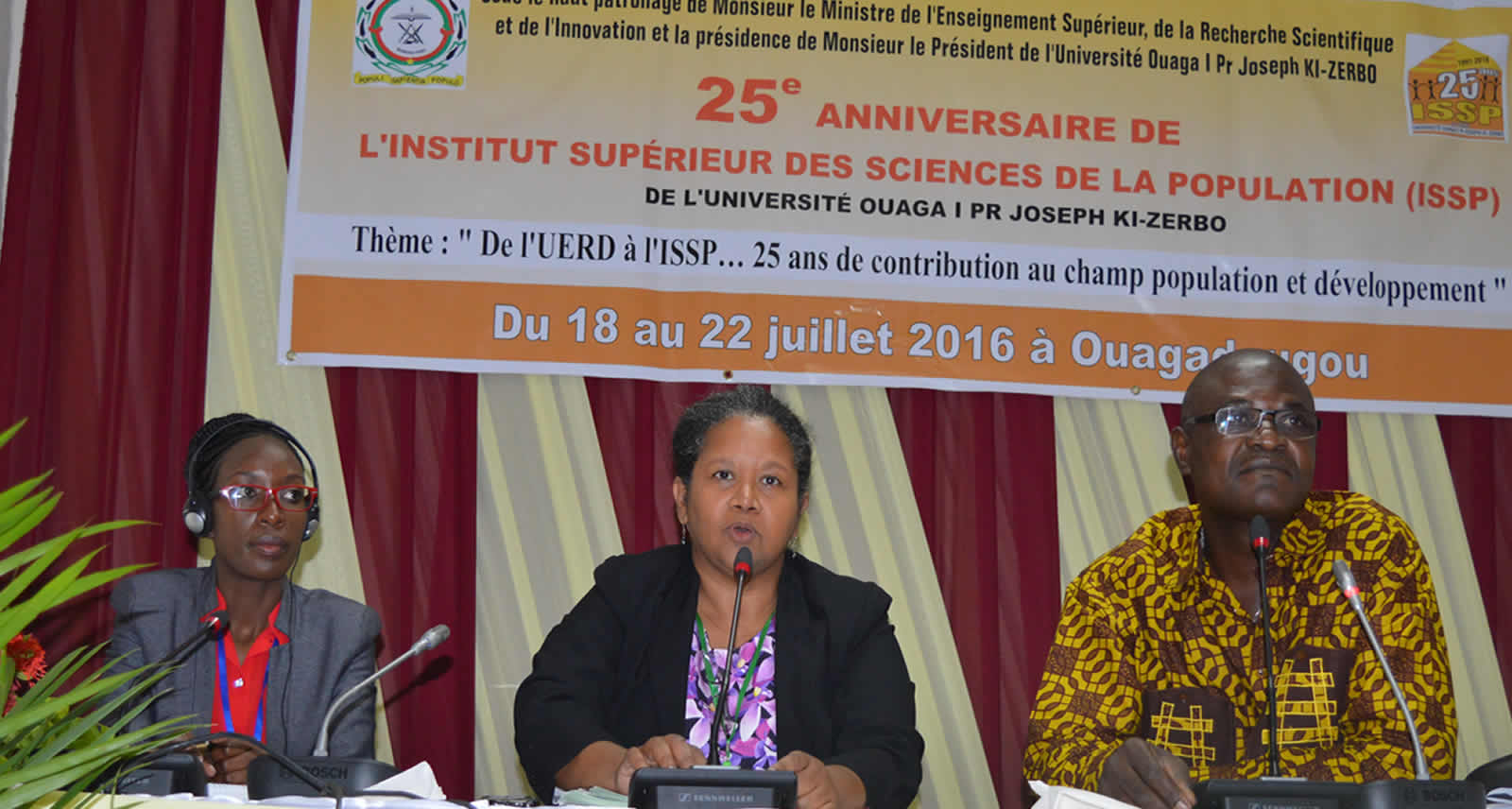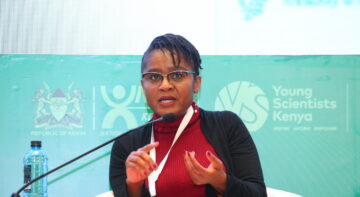News

This week researchers and development experts in population and development converged at a conference in Burkina Faso hosted by the Institut Supérieur des Sciences de la Population (ISSP) at the University of Ouagadougou. The conference whose theme was Rethinking training and research in population in Africa in the light of new paradigms and methodological approaches ran from 18 to 22 July 2016 as part of ISSP’s 25th-anniversary celebration.
Role of research in policymaking
One of the major discussion points was the role of research in policymaking. In a presentation on ISSP’s 25 years contribution to population and development in Africa by a team from ISSP including the Institute’s director, Jean-François Kobiané, it emerged that one of the main goals of the work undertaken by ISSP is to inform policy decisions by providing relevant data from research. A key success reported was the improvement of sexual and reproductive health (SRH) programming following research from the Institute. However, the team noted that although some of the Institute’s research has been instrumental in the country’s policymaking, influence remains low compared to the amount of research evidence generated so far. This led to a call to stakeholders to explore strategies that can ensure policy-makers utilise research evidence more.
In the discussions that ensued, a representative from the United Nations Economic Commission for Africa (UNECA) pointed to the fact that researchers and other development stakeholders need to take advantage of platforms such as the African Union Heads of States and Governments Summit that takes place twice a year, to engage policymakers on pertinent development issues.
Communicating research to policymakers
Besides the fact that researchers don’t take advantage of existing platforms to engage policymakers as much as they should, it also emerged that one of the critical barriers to this engagement is researchers’ inability to effectively communicate research findings to policymakers. Therefore, including effective communication within the curriculums for training researchers in their respective fields was suggested as a measure that would help to bridge this gap.
As a build-up to this conversation, AFIDEP, in liaison with the Population Reference Bureau (PRB) hosted a session on Communicating research to policymakers. The discussions further illuminated the communications skills gap among researchers. Participants agreed that research findings cannot be effectively communicated to policymakers when key messages remain complex and unpalatable “ simplification is of essence. Further, researchers were urged to consistently document the key policy-relevant issues emerging from their research to ensure that generation of policy briefs and other policy dissemination documents is not hurriedly done, as often happens.
Of interest, was the fact that some researchers spoke of having witnessed the effectiveness of integrating policymakers in research design, as opposed to disseminating the findings at the tail end of the research process. There have also been success stories in Burkina Faso where the President made changes to programmes on women’s reproductive health issues after being briefed on research related to obstetric health challenges.
The regional director for UNFPA West and Central Africa Mr Mabingue Ngom, who was present at the conference at the invitation of ISSP’s director, reiterated the importance of communicating research to policymakers. “Research has an important role to play to address issues affecting the African continent, such as the migration crisis. We need to find a way to simplify research for us to communicate this to policymakers,” he pointed out.
Mr Ngom indicated that researchers need to find strategies to ensure countries implement programmes that bring hope to African countries and avert migration. “Stringent migration rules don’t help anyone, let’s make the continent better and people will not run away,” he emphasised.
Making reference to the Ebola crisis, Mr Ngom called on researchers and other stakeholders to identify mechanisms that can facilitate learning from previous epidemics and scale-up of interventions that have been proven to work.
African solutions to African problems
The conference presented an excellent opportunity for researchers from across the world to share experiences and lessons learned on a variety of issues including running effective research studies and documenting data, monitoring, evaluation and the demographic dividend, among others.
It is encouraging that the continent has a lot of homegrown knowledge and it is a matter of ensuring that lessons learnt get incorporated into policy-making and implementation of programmes for the improvement of the lives of Africans. Africa is therefore at a good place to innovate and provide solutions to the socio-economic challenges that have plagued the continent for a long time.
Related Posts





